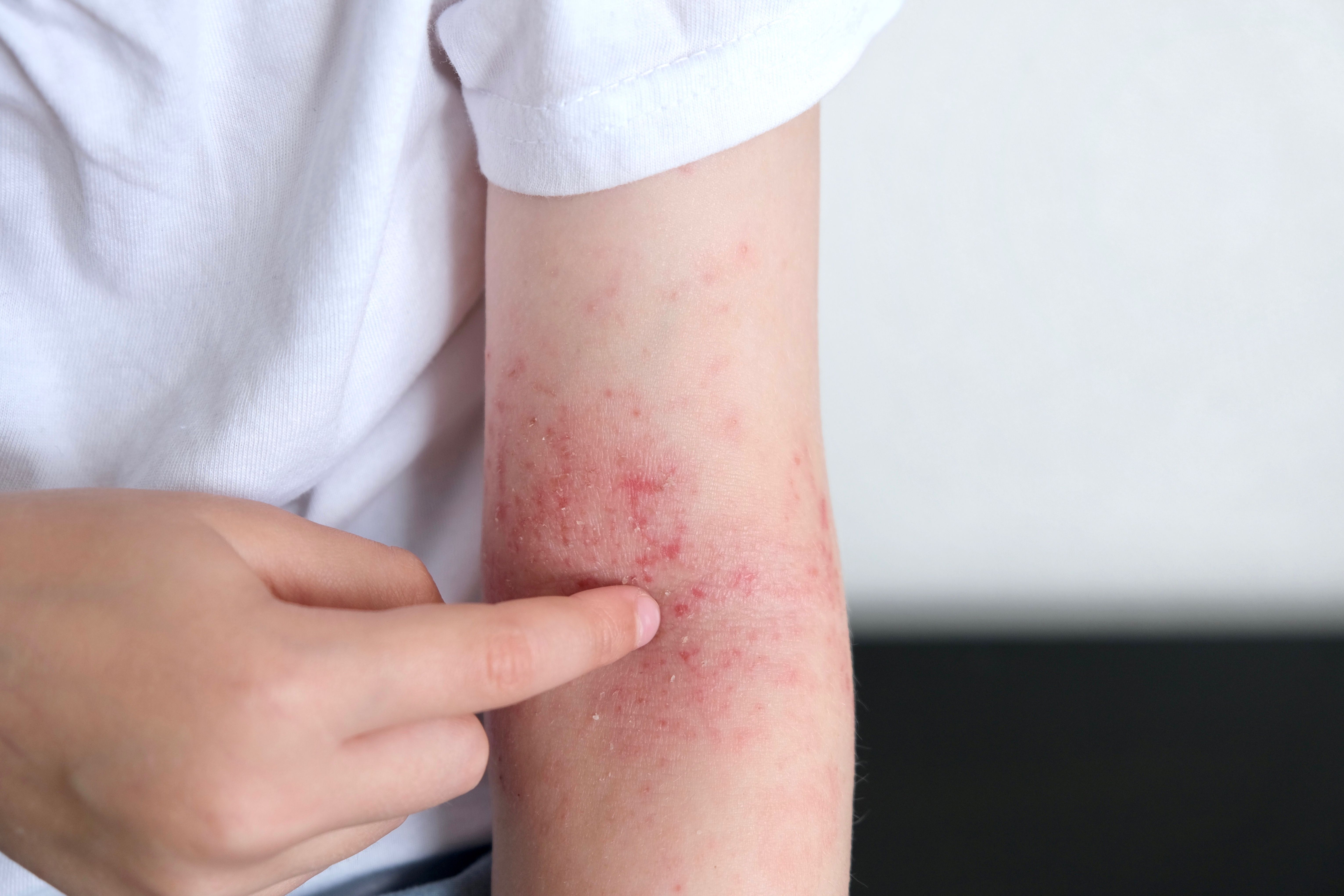- Case-Based Roundtable
- General Dermatology
- Eczema
- Chronic Hand Eczema
- Alopecia
- Aesthetics
- Vitiligo
- COVID-19
- Actinic Keratosis
- Precision Medicine and Biologics
- Rare Disease
- Wound Care
- Rosacea
- Psoriasis
- Psoriatic Arthritis
- Atopic Dermatitis
- Melasma
- NP and PA
- Skin Cancer
- Hidradenitis Suppurativa
- Drug Watch
- Pigmentary Disorders
- Acne
- Pediatric Dermatology
- Practice Management
- Prurigo Nodularis
- Buy-and-Bill
News
Article
Dermatology Times
Abrocitinib Did Not Impact Immune Responses to Vaccination in Adolescents With Atopic Dermatitis
Author(s):
A poster presented at the SDPA Annual Summer Dermatology Conference revealed the abrocitinib did not have a significant impact on adolescent immune responses to Tdap vaccination.
Abrocitinib did not appear to have any effect or appreciable differences in immune responses to the tetanus, diphtheria, and acellular pertussis (Tdap) booster vaccine in an adolescent patient population with atopic dermatitis.
Марина Терехова/AdobeStock

This finding was reported in a poster1 from the 2023 Society of Dermatology Physician Assistants (SDPA) Annual Summer Dermatology Conference.
Researchers used results and data from the JADE TEEN trial (NCT03796676) as a frame of reference. They sought to determine whether the drug, abrocitinib, had an impact on routine vaccine immunogenicity in an adolescent population, particularly among those with moderate-to-severe cases of atopic dermatitis.
In the JADE TEEN trial, adolescents with moderate-to-severe eczema, aged 12 to 17 years, received 1 of 3 treatments orally on a once-daily basis for 12 weeks:
- 200 mg abrocitinib
- 100 mg abrocitinib
- Placebo
Additionally, all participants received supplemental medicated topical therapy for their eczematous lesions. Of all participants in the trial, 25 had received the Tdap vaccine at week 8, or baseline. Of these, 6 received 200 mg abrocitinib, 9 received 100 mg abrocitinib, and 10 received the placebo.
Using this data, researchers assessed the proportion of patients with equal to or greater than a fourfold increase in immunoglobin G, specifically the concentration to vaccine antigens. This was assessed from baseline through week 12, or 4 weeks post-vaccination. This is considered a satisfactory response.
“IgG [immunoglobin G] against vaccine antigens increased in all treatment arm at 4 weeks post-vaccination,” according to Cork et al. “Abrocitinib had no apparent effect on geometric mean fold increase in antibody concentration to 6 vaccine antigens. ... The proportion of patients with a ≥4-fold increase in IgG against vaccine antigens was similar to patients treated with placebo or abrocitinib.”
Vaccine antigens included tetanus toxoid, diphtheria toxoid, pertussis toxin, filamentous hemagglutinin, fimbriae types 2 and 3, and pertactin.
While treatment-emergent adverse events were reported in 5 of the 25 participants who had received the Tdap vaccine, none were serious or severe in nature, nor did they lead to discontinuation of treatment or withdrawal from the trial.
"There were no appreciable differences in immune responses to Tdap vaccination in adolescents receiving abrocitinib compared to placebo,” Cork et al wrote. “Despite the limited sample size of the current study, the results suggest adequate immune responses to the Tdap vaccine.”
Reference
- Cork M, Eichenfield L, Flohr C, Bangert C, et al. The impact of abrocitinib on vaccine-induced immune responses in adolescents with moderate-to-severe atopic dermatitis undergoing routine tetanus, diphtheria, and pertussis vaccination in phase-3 JADE TEEN. Poster presented at the 2023 Society of Dermatology Physician Assistants (SPDA) Annual Summer Dermatology Conference; June 22-25, 2023; Boston, MA.







